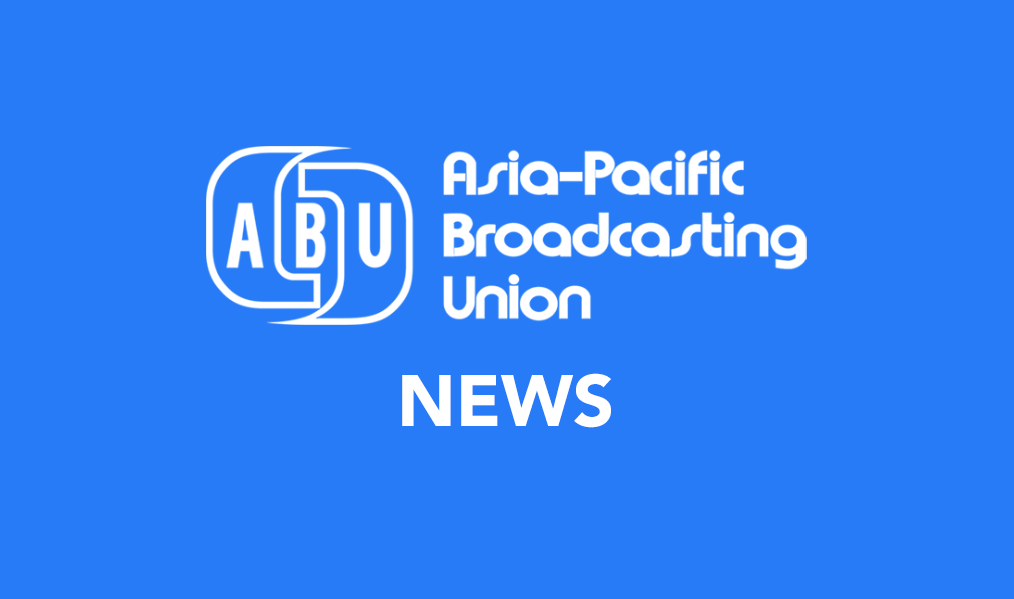
Overview
The Technical Department at the ABU undertakes wide ranging activities reflecting the current needs of the members. These activities are implemented by the Secretariat’s Technical Department. The two sub-departments under the Technical Department are the Head of Studio Technology & Training and the Head of Transmission Technology & Spectrum.
Technical Committee
All policy matters are decided by the Technical Committee , which comprises all ABU members. The Technical Committee meets once every year, usually held in the last quarter of the year. In the interval between annual meetings of the Technical Committee, the continuity of work is ensured by a group of members, Technical Bureau, who were chosen among the Technical Committee.
Technical Bureau
The Technical Committee has established four Topic Areas: Production, Transmission, Spectrum, Training and Services, each responsible for studies in a clearly defined set of subjects. The following are the main on-going activities:
Technical Studies
The Project Managers coordinate, research and study a range of technological developments. The purpose of such studies include addressing new technologies and the harmonisation of technical standards and operational practices in the region. This activity is becoming increasingly important because of the rapid changes in the field of broadcasting technology.
Technical Advisory Service (TAS)
Administered by the Technical Department, this service provides the developing broadcasters among ABU members with the help they need in improving their standards of service and equip staff with skills needed to perform their responsibilities and planning new projects. It brings in experts from other ABU members for short-term consultancies at no cost to the member.
Media Learning Centre
Managed by the Technical Department on behalf of the ABU and the AIBD (Asia-Pacifc Institute for Broadcasting Development), the Media Learning Centre is a online distance learning platform using the Internet as the communication medium. The ABU and AIBD conduct training courses on topics related to technical, programme and copyrights issues through this platform.
Technical Information
Providing technical information to the members is a main activity of the Technical Department. The activity takes various forms including the publication of the ABU Technical Review and regular distribution of clippings containing a selection of the most useful papers published in technical journals worldwide.
Several documents are available on the Technical Department’s site and can be downloaded at no cost from our FTP site. The Technical Department will update other useful documents at this site from time to time.
Publications
The ABU publishes monographs and manuals from time to time on subjects which are of particular importance to ABU members. Such publications in the recent past have covered the design of studios, archiving practices, teletext, satellite broadcasting, radiation hazards, digital audio workstations, etc.
Coordinated Use of Shortwave Frequencies
The ABU has established a High Frequency Coordination Group, ABU-HFC, to provide a forum for international radio broadcasters in the region to mutually coordinate the use of the shortwave frequency bands on a seasonal basis. The objective of this activity is to minimise interference in shortwave radio services.
Activities related to the ITU
The ABU contributes to the activities of the International Telecommunication Union (ITU) and its specialised bodies on behalf of the members. Such activities include the setting of technical standards, and allocation of frequencies for broadcasting services.
Spectrum management and Regulatory Activites
The ABU carries out studies on usage of radio frequency spectrum and its regulation. The ABU contributes regularly to such activities to the international forums, including to the World Radiocommunication Conferences of the ITU, the Conference Preparatory Group of the Asia-Pacific Telecommunity among others.
ABU contributions to the ITU World Radiocommunication Confrence 2007 (WRC-07).
Spectrum Events
A major event for spectrum activities of the ABU, the ABU Prepatory Seminar on WRC-07, took place in Kuala Lumpur from 11-14 June, 2007.
Inter-unions activities
There are eight unions internationally. The meeting point of these unions is the at the World Broadcasting Unions (WBU) which has established a number of specialised forums, including one of Technical Committee. The ABU is an active member of the Technical Committee. Recent reports prepared by the ABU on behalf of the WBU-TC, can be downloaded from the ABU FTP site as follow:
Digital Radio Guide
Digital Terrestrial Television Transmission User Needs and System Selection
Primer on HF Coordination
WBU-TC IT Radio Production Survey
The WBU-TC conducted a survey in 2003 on the experiences of broadcasters in the use of IT equipment for radio production.
ABU Digital Radio Forum
The ABU Digital Radio Forum is a forum for radio broadcasters interested in issues related to planning and implementation of digital sound broadcasting services in the ABU region.
ABU Developing Broadcasters’ Forum
The ABU Developing Broadcasters’ Forum provides a platform for the developing broadcasters in the membership to articulate their views and identify required assistance from the Union.
ABU ICT Forum
The ABU ICT Forum provides a focus for activities related to use of the new ICTs for broadcasting services.
Technical Database
An up-to-date database is maintained by broadcasting stations and equipments currently in use by the ABU members. It has information of country profiles of training facilities, directories of resource persons and training materials, etc. It is updated regularly.
Seminars
Technical seminars, workshops and conferences are organised from time to time on subjects of topical interest. Experts from other broadcasting unions, international organisations and industry at large are invited as speakers.
Discussion Forum
A web-based discussion forum on implementation issues of digital television broadcasting has been established.

